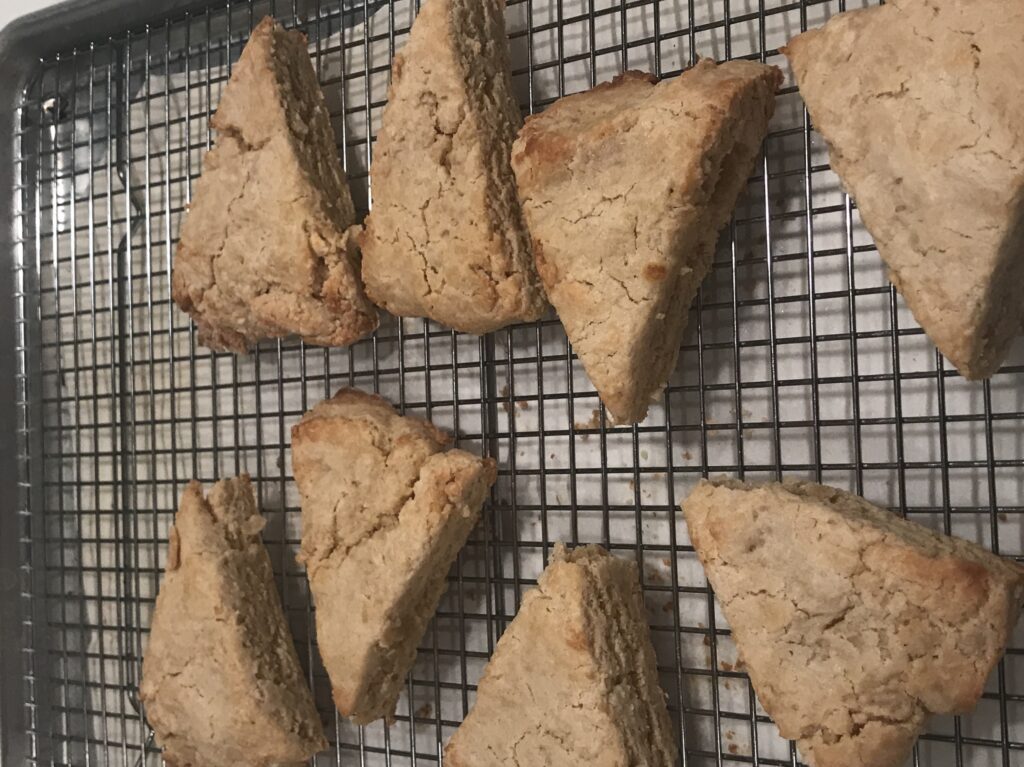 I’ve been trying to keep my mind off of (not think about) the coronavirus pandemic (wide-spreading of a disease). So last week I decided to learn how to bake.
I’ve been trying to keep my mind off of (not think about) the coronavirus pandemic (wide-spreading of a disease). So last week I decided to learn how to bake.
It was a disaster (very bad event).
I tried making two kinds of desserts (sweet things eaten after main meal). They tasted awful (terrible, bad).
I then realized that I should probably stick to (continue doing) what I know – teaching English. So I wrote a little “guide” to “pandemic English” you may be seeing in the news.
SOCIAL DISTANCING: To keep yourself away from other people as much as you can.
Here in the U.S., people are being told to stay at least 6 feet (about 2 meters) from other people on the street, in a store, etc. Of course, the best social distancing is to stay at home, which is what I’m doing.
COVID-19/CORNAVIRUS: These are the same thing, used to describe the virus itself.
HAND SANITIZER: This is a special liquid that helps keep your hands clean when you can’t wash them.
Health experts tell people to wash their hands with soap and water thoroughly (completely), at least 20 seconds, which is better than using sanitizer. But if you are out and away from a bathroom, then hand sanitizer is the next best thing (the second best thing).
QUARANTINE: To be placed apart from everyone else, especially if you have a disease.
Some governments are quarantining cities or areas, not allowing anyone in or out.
SELF-ISOLATE: Similar to quarantine, this means to stay away from other people, but usually does not involve a government order or law.
SHELTER IN PLACE: These means not to leave where you are right now (home), to NOT go anywhere unless it is necessary.
Shelter-in-place, self-isolation, and quarantining all basically look the same for most people.
FLATTEN THE CURVE: To reduce the number of people getting infected and dying from the coronavirus.
The idea is that if we do things like wash our hands, self-isolate, wear a mask, etc., we will prevent having too many sick people for the hospitals to help.
So stay safe wherever you are, and maybe try learn a new skill, like how to bake. I’m sure you’ll do better than I did!
~Jeff
P.S. The photo is of the world’s worst scones (a British sweet biscuit), made by me. They were so bad I had to throw them all away in the trash (really!).
P.P.S. Looking for a good way to spend your time at home? Try improving your English with our Unlimited English Membership: https://tv.eslpod.com
P.P.P.S. Like this short English lesson? Get a FREE sample lesson (no money needed) – SIGN UP BELOW!
Just fill out the form below and we’ll send a FREE lesson to try!
We hate spam, too! We will never sell, rent, or give your information to anyone – ever!
What Will I Learn in My Free Lesson?
Here is just a small part of what you’re going to learn in this free lesson:
- What “take a rain check” means and how to use it in a conversation . . .
- The difference between a “recluse” and a “busybody” . . .
- Why “to fend OFF” means something from “to fend FOR” . . .
- What it means to “take a rain check,” “keep to yourself,” and “to appoint (someone)” . . .
- What a social secretary is . . .
- The best way to use “to sort out” and “to turn down” . . .
- How to use phrasal verbs like “to settle in” and “to settle down” (they’re not the same!) . . .